Ideas into movement
Boost TNI's work
50 years. Hundreds of social struggles. Countless ideas turned into movement.
Support us as we celebrate our 50th anniversary in 2024.

The Alternative World Water Forum - FAMA, held from March 17th to 22nd in Brasilia attracted 7,000 people from almost every state in Brazil. FAMA sent a clear message that it would not engage with the opaque 8th World Water Forum, hosted by the private think-tank World Water Council and its corporate partners. The World Water Council has fostered pro-privatisation policy debates for decades.
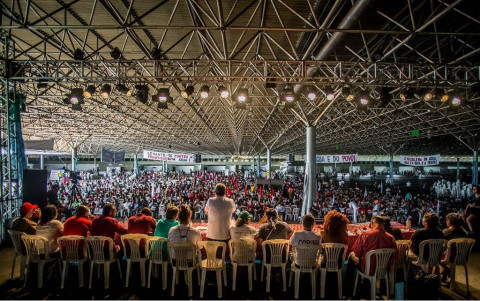
FAMA
The 8th World Water Forum’s total budget is reported to be €103 million. At the lowest estimate, more than half of this (€52m) was financed by the Brazilian taxpayer, through the Federal District Government (more than €30m) and ANA - National Water Agency (€22m), without any scrutiny. This massive public spending for such an obscure event is highly questionable when the Brazilian government scraps health and education budgets and programmes extensively, and faces a serious crisis of urban infrastructure. Despite an access-to-information request, the minimal accounting for the event has not been disclosed. [1] The 8th World Water Forum raises the serious question as to why precious public money is being used to provide space for large corporations to advance their business agenda. Before the World Water Forum, it was reported that Nestlé and Coca-Cola had reached a deal whereby they were assigned exclusive rights to extract water from the Guarani aquifer, the largest single underground renewable freshwater reservoir in the Americas. [2]
According to the World Water Forum website, the orginisers expected 40,000 participants but in reality it was just over a quarter of this amount (10,600 people) who attended. This would indicate that the political relevance of the World Water Forum for policy makers has decreased, and that the 8th World Water Forum has attracted only those with enough interests who are willing to pay the excessive fee (€850 for people coming from OECD countries). Since the 7th World Water Forum held in South Korea in 2015, a ‘civil society forum’ has been created to evade increasing criticism of the World Water Forum’s legitimacy. In Brasilia, alongside this civil society forum, a ‘citizen village’ was set up outside of the venue, open to members of the public and free of any entry charge. FAMA and the global justice movement rejected any participation in these artificial ‘citizen’ spaces.
Instead, FAMA successfully made its own space of diversity, welcoming the indigenous movements, quilombolas, fishermen, traditional communities, rural organisations, and socio-environmental movements from all over the world. This alternative space centred on people and communities who are affected by water contamination, deprivation and privatisation. It is worth noting that the Federal District Government supported FAMA with 1.2 million Brazilian real (about €300,000), which is 1% of the excessive amount of aid they put into the World Water Forum. One third of the amount given to FAMA was not cash but an ‘in-kind’ contribution, an agreement allowing FAMA to use the University of Brasilia campus for two days. FAMA was largely organised by individual donations, contributions from progressive foundations and trade unions, and through people’s commitment. FAMA participants were asked to make a contribution, if they were able to, of 50 reais (€12.50 for the 6-day event). FAMA provided a space for discussion about the strategies for alternatives which are now emerging from water justice struggles. Some of these are showcased below.
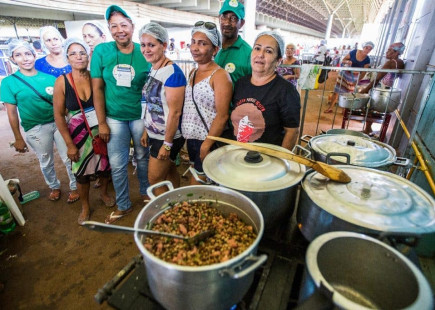
FAMA
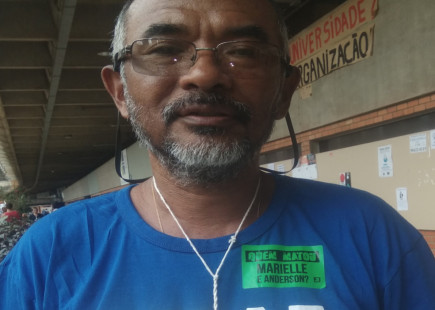
Ary Girota, an employee of the state water supply and sanitation company Companhia Estadual de Águas e Esgotos (CEDAE), took to the stage to denounce the Rio de Janeiro government’s plan to privatise CEDAE. Back in 2016, Brazil's ‘interim’ government, led by Michel Temer, granted an emergency loan to the State of Rio de Janeiro, to help finance infrastructure for the 2016 Olympics. Conditional to this bailout was the selling off of CEDAE. Although the privatisation was authorised in February 2017, it had been suspended due to resistance by unions, who filed two lawsuits challenging the action. According to Ary, ‘the government wants to make Rio a laboratory for other privatisation projects. CEDAE is intentionally underfunded to fail, and to prepare the ground for privatisation. We must be vigilant. Workers are not being paid for a month, and 6,000 workers are will not be part of the ongoing restructuring process. CEDAE should be reformed with social control – workers’ and users’ participation – and transparency. We will intensify our fight by working with low-income households who need affordable water services.’
Remunicipalisation is a local response by citizens and local authorities to systematically failing water privatisations and public private partnerships (PPPs). The latest research (January 2017) by TNI and its partners has revealed 835 cases across seven essential services. Of these, 267 are water cases. During FAMA, a previously unknown major remunicipalisation case in Tocantins state was reported, which now makes Brazil part of the global remunicipalisation picture.
During the 1990s, Brazil experienced a wave of privatisations. The only case to have involved sanitation services occurred in Tocantins state in 1997, when a highly opaque process saw the state sanitation company sold to the private company Saneatins. The necessary legal consent of all of the affected municipalities was not given, and the private contract referred only to four municipalities which had populations of 50,000 or more. After the privatisation, there was no significant improvement in the universalisation of sanitary sewage and water services, with rural areas and smaller municipalities becoming neglected instead. The State decided to recover control by establishing a new state sanitation company in 2010: Tocantins Agency of Sanitation (ATS) returned state control to 78 municipalities of 290,000 people in urban areas and 139 municipalities of 300,000 people in the entire rural area of the State.[4] A detailed study will follow.
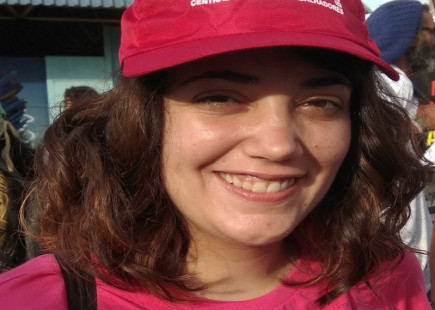
In February 2018, Aigua és vida (Water For Life platform in Catalonia) collected 26,389 signatures calling for a local referendum in Barcelona. A new citizen participation law allows residence in Barcelona to present their concerns if they collect 15,000 signatures, representing 1% of Barcelona’s population. Following the city council's approval in April 2018, in June people will be asked: ‘Do you want to have democratic public water management in Barcelona?’ Aguas de Barcelona (Agber), a subsidiary of Suez, is not running the city's water in a transparent way, although it has enjoyed making profits with its business since the 19th century. The company desperately lobbied the city council not to approve the referendum, filed three court appeals trying to challenge the citizen participation law. According to Miriam Planas, an activist of Engineers Without Borders (ISF)/Aigua és vida: ‘Agber is afraid of people’s voices being heard in a democratic way. Although the referendum is not binding, we are confident the city council will take serious consideration of its results.’ Agber has intensified its “Responsible Management” advertising campaign on TV, on the metro, buses, everywhere. People know that it is their water bills that are paying for these huge advertisements.’
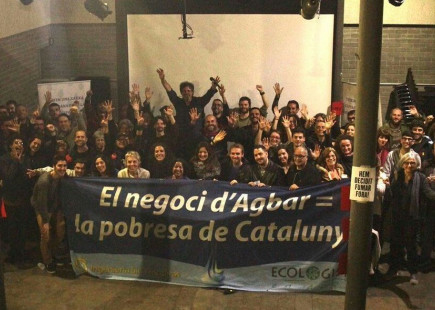
Aigua és vida
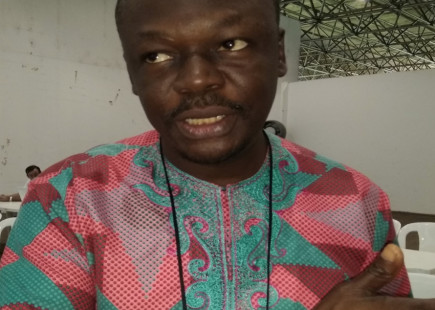
Philip Jakpor is a leading campaigner of Our Water, Our Rights, a movement based in Nigeria, and he is one of the few FAMA participants from Africa. He brought with him valuable lessons from Lagos, where 85% of population has to rely on unhealthy water sources over the last decade, since the Lagos state water company became obsessed with developing PPPs with the World Bank rather than making the people and its obligations towards them its priority. Our Water, Our Rights unites the environmental organisations, trade unions, women and human rights organisations and the many communities who have successfully fought against the World Bank-driven privatisation of the Lagos state water company over the last five years. Public pressure has forced the company’s corrupt managing director to be fired, and the advisory contract with the World Bank to be cancelled last year. At FAMA’s united plenary, Philip said: ‘We have learned the value and strength of grassroots, bottom-up movements. We have also learned that, besides protesting current government plans, it is also extremely important to be able to provide alternatives.’ In 2016, the campaign presented its report Lagos Water Crisis: Alternative Roadmap for Water Sector, which instead of privatisation suggests detailed proposals for democratising the state water company to achieve universal access to water. The fight is not yet over, however. The PPP-obsessed Lagos government is now trying to proceed with a PPP contract for the Adiyan II water facility, currently under construction. Adiyan I is one of the state’s major water works, and Adiyan II is being built to increase water production capacity. Four companies, including the global water giant Veolia, have been shortlisted, although the public has been kept in the dark on any further details. On World Water Day, 22 March 2018, Lagosians were out on the streets to say ‘No’ to a new PPP. ‘The growing wave of remunicipalisation the world over shows that democratic control of water is the direction to go in,’ Philip insisted. ‘Nigeria cannot lag behind.’
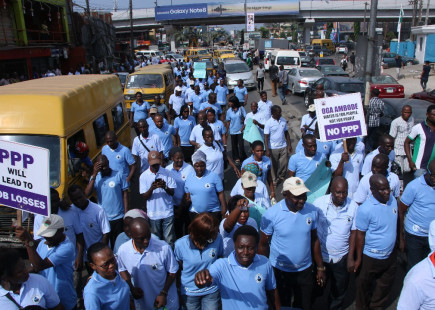
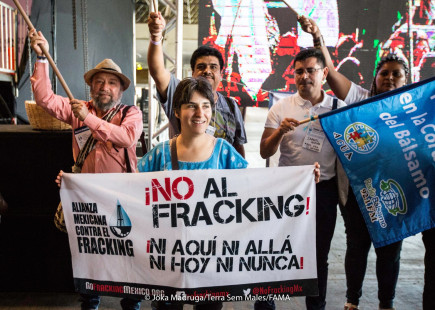
FAMA
Just as in Brazil, the pollution of water bodies and the privatisation of water sources is creating marginalisation and exclusion of communities throughout the Latin-American continent. The human right to water is being denied to these communities as a consequence of mining, hydrocarbon extraction and large-scale industrial agriculture. Members of the Platform for Public Community Partnerships of the Americas (PAPC) from Bolivia, Colombia, Mexico and El Salvador have implemented a horizontal and solidary cooperation among community water systems to fight against privatisation and to embody the right to self-management of water. Although lacking legal and political recognition, community-based water management – through the use of aqueducts, and by committees and cooperatives and so on – plays an important role in supplying water to people across Latin America. Javier Marquez told FAMA that the National Community Water Supply Network of Colombia has worked out a popular bill with the purpose of legally protecting these community water organisations. The bill, finalised in 2017, is based on the bottom-up process of consultation, and it is ready to be presented to the Colombian Congress. In Mexico, Coordinadora Nacional Agua para Tod@s Agua para la Vida (Water For All, Water For Life) has proposed the citizens' bill, which has been developed through a nationwide bottom-up process including 99 public forums. It connects local grassroot struggles against privatisation and water resource contamination with indigenous peoples and urban popular movements, for access to and local control over water resources. Ricardo Ovando said: ‘The citizens' Initiative for the General Water Law (IC-LGA) ambitiously addresses sustainable water basin plans and democratic water service provision in an integrated way. We fundamentally challenge the government’s law proposal which treats water as a commodity and keeps prioritising mining companies’ use of it.’ He ended his speech powerfully. ‘They have the money, but we have the majority’.
References
[3]
[4] PRIVATIZAÇÃO DE COMPANHIA ESTADUAL DE SANEAMENTO: A EXPERIÊNCIA ÚNICA DO TOCANTINS LIÇÕES PARA NOVOS ARRANJOS COM A INICIATIVA PRIVADA
Related documents
FAMA final declaration:
English: http://fama2018.org/2018/03/27/fama-final-declaration-reaffirms-water-is-not-commodity-water-belongs-to-the-people/
Spanish: http://fama2018.org/2018/03/27/declaracion-final-foro-alternativo-mundial-de-las-aguas/
Related documents and reading
Portuguese: http://fama2018.org/2018/03/22/declaracao-final-do-fama-reafirma-agua-nao-e-mercadoria-agua-e-do-povo/
FAMA website